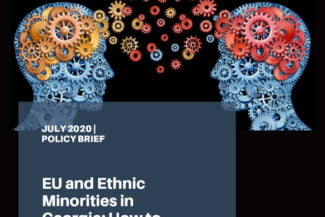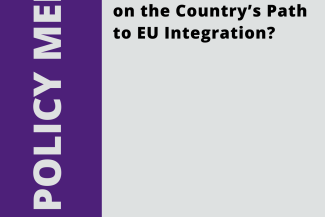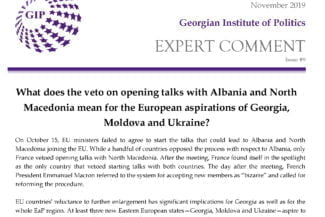12-01-2021
The first of the four documents, but by no means in terms of importance, is authored by Levan Kakhishvili and asks an important question: Do ethnic minorities benefit from Georgia’s Europeanization? In this document, Levan Kakhishvili explores how minority communities perceive Europeanization and associated benefits tangible and intangible, which is followed by a discussion on what barriers minority communities face to fully enjoy these benefits.
Salome Minesashvili in the following policy document analyzes the flow of information and provides a comprehensive answer to the question of how it is possible to counter misinformation and disruptive communication ethnic minorities as well as other vulnerable segments of the Georgian public in the context of Europeanization. Although the buzz word of misinformation may lead to negative expectations, Salome Minesashvili concludes that, in fact, minority communities do not have strong opinions about the EU, which she believes can be utilized as an opportunity. With the appropriate approach, it is possible to fill the informational vacuum and thus counter misinformation efforts and/or disruptive communication.
In the following document, the reader will find Nino Samkharadze tackling the issue of skepticism among minority communities with respect to Europeanization. Considering the challenges of integration of minority communities in Georgia, the issue of skepticism can exacerbate the process of Europeanization and building the societal consensus. The document concludes that although perception of Europe per se is rather positive than negative among the members of minority communities, the skepticism towards what Georgia can achieve with Europeanization is largely influenced by the fact that minorities are often isolated from the rest of the society. Nino Samkharadze identifies distinct trends within the communities in terms of age, gender and settlement type and develops recommendations to manage the skepticism with a specific target audience in mind.
Last but not least, Salome Kandelaki analyzes the barriers to political participation of ethnic minorities. Given that political participation is influenced by numerous different factors both structural and cultural, Salome Kandelaki has identified a lengthy list of the barriers hindering political participation including the likes of how political parties have often treated minority communities, high degree of centralized decision-making practices, nepotism in local governance structures, etc. Like all other authors, Salome Kandelaki has also elaborated recommendations specific to the issue under question.
This compendium would not have been possible without the generous support of the EU under the framework of Erasmus+ Jean Monnet Project “Promote and Act for Europe”.
Authors: Levan Kakhishvili, Nino Samkharadze, Salome Kandelaki, Salome Minesashvili













